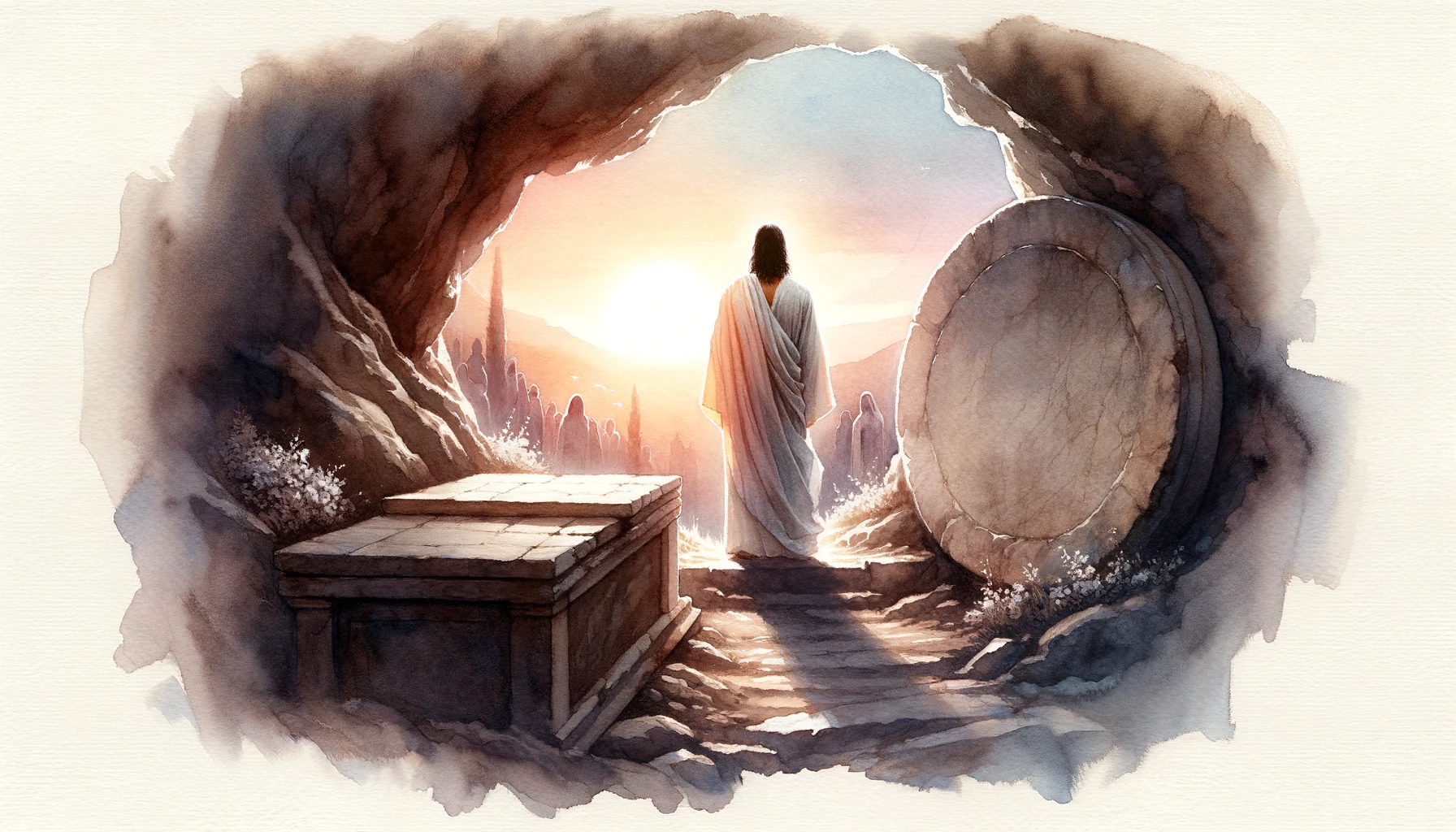Throughout history, the resurrection of Jesus Christ has been a topic of both faith and skepticism. How can believers and seekers alike come to terms with this central event of Christianity? What historical, textual, and experiential evidence exists that lends credibility to the resurrection? These questions are not just theological in nature but also touch on the realms of history, archaeology, and personal faith. In seeking answers, we delve into the myriad of evidence available, from ancient manuscripts and historical records to personal testimonies and transformed lives. The quest for understanding does not diminish the mystery of the resurrection but rather illuminates the profound impact it has on individuals and the world at large.
Historical and Textual Evidence
The foundation of Christian faith in the resurrection is not built on myths or legends but on a robust historical and textual framework. Early accounts of Jesus Christ’s life, death, and resurrection are documented in a collection of writings that have been meticulously preserved over the centuries. The Gospels—Matthew, Mark, Luke, and John—offer detailed narratives of these events, each from a unique perspective but with remarkable consistency in the core facts (Matthew 28, Mark 16, Luke 24, John 20).
Beyond the biblical texts, early Christian writers and historians such as Josephus and Tacitus provide external attestations to the life and crucifixion of Jesus, lending further credibility to the historical Jesus. These sources, though not Christian themselves, acknowledge the existence of Jesus and the early Christians’ belief in his resurrection.
Archaeological findings also contribute to our understanding of the historical context in which Jesus lived and the early church grew. Discoveries such as the Dead Sea Scrolls have provided invaluable insights into the religious and cultural milieu of first-century Judea, affirming the authenticity of biblical narratives.
The early dissemination of Christianity is another compelling piece of evidence. The rapid growth of the Christian movement, despite persecution and martyrdom, points to the profound conviction of the first Christians in the resurrection. Their willingness to die for their belief underscores their confidence in the truth of the resurrection. This is not merely indicative of their faith but also serves as a testament to their firsthand experiences and encounters with the risen Christ.
The consistency of the resurrection accounts across multiple sources, the corroboration by external historians, archaeological evidence, and the transformative impact of these events on the early Christian community all form a cohesive and compelling case for the historical reality of the resurrection. The preservation of these texts and the unbroken chain of transmission through centuries underscore the care with which these documents were treated, reflecting their importance to the Christian faith.
The resurrection of Jesus Christ is supported by a solid foundation of historical and textual evidence. The consistency and detail of the Gospel accounts, corroborated by external historians and archaeological findings, offer a comprehensive picture of the events surrounding Jesus’ life, death, and resurrection. The profound belief of the early Christians, even in the face of persecution, further attests to the authenticity of their experiences. This combination of evidence strengthens the credibility of the resurrection as a historical event, reinforcing its central place in Christian faith.
Experiential Evidence and Personal Testimonies
The resurrection of Jesus Christ is not only a historical event recorded in ancient texts but also a reality experienced by countless individuals throughout history. Personal testimonies of encounters with the risen Christ are a powerful form of evidence that continues to affirm the truth of the resurrection to this day. These experiences, while personal and subjective, collectively form a compelling narrative of the transformative power of the resurrection.
The initial evidence of the resurrection comes from the accounts of those who first witnessed the risen Christ. The disciples, who were disheartened and fearful following Jesus’ crucifixion, were transformed into bold proclaimers of the gospel after encountering Him post-resurrection (John 20:19-23). Their transformation from despair to unwavering faith is a testament to the reality of their experiences. Mary Magdalene, who went from mourning at the tomb to announcing the resurrection to the disciples (John 20:11-18), and Thomas, who moved from doubt to belief upon seeing Jesus (John 20:24-29), exemplify the profound impact of personal encounters with the risen Lord.
Throughout the centuries, countless individuals have testified to experiencing Christ’s presence in their lives, often in moments of deep despair, offering them hope and a new direction. These testimonies are not mere psychological phenomena but real encounters that have led to life changes, healing, and sometimes even miracles. The stories of transformed lives are as diverse as humanity itself, crossing cultural, racial, and socio-economic lines, pointing to the universal reach of the resurrection’s power.
The experiential evidence of the resurrection is also reflected in the global spread of Christianity. From a small group of Jewish followers in Jerusalem, Christianity has grown to encompass billions of believers worldwide. This widespread faith, inspired by the message of the resurrection, speaks volumes about the enduring and universal appeal of the resurrection narrative. It suggests that the resurrection is not just an event that happened two thousand years ago but a living reality that continues to inspire, heal, and transform lives.
The continued existence and growth of the church, despite persecution and opposition throughout history, also testify to the resurrection’s power. The church has faced and overcome numerous challenges, from external persecution to internal reform, yet it continues to thrive and expand. This resilience is a testament to the living presence of Christ within the church and among its believers, guiding and sustaining them through the ages.
The experiential evidence and personal testimonies of the resurrection of Jesus Christ are as compelling as the historical and textual evidence. From the initial witnesses who were radically transformed by their encounters with the risen Christ to the countless individuals throughout history who have experienced His presence in their lives, these testimonies speak to the truth and power of the resurrection. The universal spread of Christianity and the enduring resilience of the church further affirm the transformative impact of the resurrection, showcasing it as a living reality that continues to inspire, heal, and change lives across the globe.
The Impact of the Resurrection on Individuals and Society
The resurrection of Jesus Christ has had a profound impact not only on individual lives but also on society as a whole. This event, central to Christian faith, transcends mere religious observance, influencing the moral, ethical, and spiritual dimensions of societies where Christianity has taken root.
One of the most significant impacts of the resurrection is the concept of hope it instills in believers. The resurrection promises life beyond death, offering a perspective that challenges the finality of the grave (1 Corinthians 15:20-22). This hope influences how individuals face their own mortality and cope with the loss of loved ones, providing comfort and strength in moments of grief.
The resurrection has inspired countless acts of charity, compassion, and social reform. Motivated by Jesus’ victory over death and his teachings, Christians have been at the forefront of movements for social justice, healthcare, education, and the welfare of the poor and marginalized. The establishment of hospitals, universities, and various charitable organizations can be traced back to the desire of Christians to live out the implications of the resurrection in serving others.
The ethical teachings of Jesus, underscored by his resurrection, have also shaped societal norms and laws. The principles of forgiveness, love, and peace have influenced legal systems and cultural practices, promoting human dignity and rights. The abolition of slavery, the civil rights movement, and the emphasis on humanitarian aid are examples of the resurrection’s impact on societal values and actions.
The resurrection has fostered a sense of community and belonging among believers. The church, as the body of Christ, represents a diverse community united by a common faith in the resurrection. This unity transcends ethnic, cultural, and social barriers, creating a global community of believers committed to supporting one another and advancing the common good.
The celebration of Easter, commemorating the resurrection, is a testament to its enduring significance. This event not only recalls the historical fact of Jesus’ resurrection but also celebrates the ongoing impact of this event on individuals and societies. Easter is a time of reflection, renewal, and reaffirmation of faith, marked by traditions that remind believers of the hope and transformation the resurrection brings.
The impact of the resurrection of Jesus Christ extends far beyond individual faith to shape societies in profound ways. It instills hope in the face of death, inspires acts of charity and social reform, influences ethical standards, and fosters a global community of believers. The enduring celebration of Easter reflects the significance of the resurrection, not just as a historical event but as a transformative force in the lives of individuals and the broader society.
Resurrection Reality: The Foundation of Our Faith
The resurrection of Jesus Christ stands as the bedrock of Christian faith, providing a solid foundation of historical, textual, and experiential evidence that affirms its reality. This event transcends mere historical fact, influencing individuals and societies with hope, transformation, and a sense of community. The profound impact of the resurrection continues to inspire, challenge, and comfort believers, affirming the promise of eternal life and the presence of Jesus in the lives of those who follow Him.
Key takeaways:
- The resurrection is supported by compelling historical and textual evidence.
- Personal testimonies and transformed lives provide experiential evidence of the resurrection’s reality.
- The resurrection’s impact on individuals and society reflects its transformative power and enduring significance.
Further Reflections:
- How does the evidence of the resurrection strengthen your faith?
- In what ways have you experienced the transformative power of the resurrection in your life?
- How can the impact of the resurrection influence your actions and interactions in society?
Let the truth of the resurrection inspire you to live with hope, act with love, and share the message of Jesus Christ with boldness. The reality of the risen Lord empowers us to face challenges with courage and to make a difference in the world around us.












